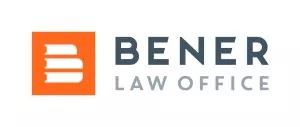INTRODUCTION
Turkey does not have a set regulatory procedure for "Right to Work" verification during HR onboarding, or other immigration compliance forms (ex. Form I-9 in the US). That doesn't mean there is no liability, just that the procedure to verify is not as formalized as it is in countries like the US. Generally, any foreigner found on a company worksite engaged in productive work must have work authorization either specifically for that employer located in that particular worksite, or an open work authorization (i.e Blue Card etc, see exceptions below). So an employer is indeed liable for immigration (and other) fines if found to have foreigners working on site in a non-compliant manner.
Additionally, as a general rule, Turkish immigration law does not currently recognize any exception for sub-contractors or independent contractors from the standard work permit compliance rules (note a current section of the work permit law for third party consultant visas is not yet implemented). So any sub or independent contractor found engaging in productive work on a company worksite must have a work permit approved in the company's name for that specific worksite (see exceptions below).
ONBOARDING EMPLOYEES IN TURKEY
A Turkish employer may come into contact with "Right to Work" type immigration compliance issues first by virtue of payroll, and second by virtue of an audit or inspection scenario with the Ministry of Labor. In order to register the employee on payroll of the employer, the employer needs the Turkish identity number. If this is a Turkish national, the number is shown on their Turkish ID card (kimlik). If the employee does not have a Turkish ID card, they generally must be sponsored by that employer for a specific position and specific worksite of the sponsor (see exceptions below). Therefore the employer does not necessarily go through a right to work check, since they must sponsor the work permit directly. As can be seen by the list of statuses below, there are very few statuses for a non-Turkish national to work aside from the standard work permit sponsored by the employer.
As a result, a Turkish company should be aware that if the potential employee is not able to provide a Turkish passport or Turkish ID card, the employer must have sponsored an approved work permit for the employee before she/he is allowed to commence work for the company in Turkey - unless they qualify for one of the exceptions below.
When onboarding a new employee, the employer must use the individual's government-issued identity number (kimlik numarası) in order to register them on payroll. If the number begins with a "99", or "98", or the potential employee has no number, the employer is on notice that the person is not recorded as a Turkish citizen. Having such an ID number may or may not mean the individual is work authorized. Ideally, the employer should confirm if the employee has the appropriate work authorization to allow them to work for the employer and under what conditions. Note the below types of status and details on "right to work":
- Turkish citizens: Evidenced by a valid Turkish passport or Republic of Turkey Identity Card issued by the Populations Registry. Fully authorized to work from an immigration perspective.
- Blue Card holders: Evidenced by a blue card issued by the Populations Registry (or consularpost) to individuals who renounced Turkish citizenship but applied for and were granted blue card status.
- Work Permit holders: Evidenced by a work permit card issued by the MOL (note the ID number on the card will start with a "99". Work authorization is limited to the validity period, employer and to the specific worksite listed on the card)
- Assembly and Maintenance Visa ("AMS") Visa holders: Evidenced by an AMS visa issued by the Turkish Ministry of Foreign Affairs, stamped in passport (note these individuals will have no ID number and must remain employees of the foreign non-Turkey Company that sent them. They are not eligible for local hire and are limited to the specifics of AMS regulations.
- Turquoise Card holders (Turkuaz Kart): These are not yet being issued by the MOL. Whether those ID numbers that result from this category will also begin with "99" is not yet known.
Please note that the following categories are not eligible to work solely based on the below status:
- Residence Permits: Evidenced by a residence card issued by the Migration Directorate. The ID number will also generally start with a "99" (note not eligible to work regardless of short term or unlimited - unless under the Media/Press category)
- Temporary Protection status: Evidenced by a TPS card where the ID number may begin with a "98" (note whether refugees or TPS, these individuals are not eligible to work based solely on these statuses)
Exceptions:
A current exception to the above would be if the employee can show a valid Blue Card or is a member of the Press holding a valid press card and residence permit based on press category. Note that an AMS visa holder does not fit this general model though can also be considered an exception to the work permit rule. In this scenario, an AMS visa holder remains an employee of their non-Turkey employer abroad, and cannot be placed on Turkey payroll in any manner. In the event of an inspection, if an AMS visa holder is found on the Turkish Company's worksite, the Company must show a copy of the AMS visa and visa support letters and ensure that the person confined their activities and duration within the limits of this visa category.
Lastly, recall that categories that may be an exception in the future, such as a Turquoise Card and cross border consultant visa, are not yet being issued/implemented.
The content of this article is intended to provide a general guide to the subject matter. Specialist advice should be sought about your specific circumstances.


